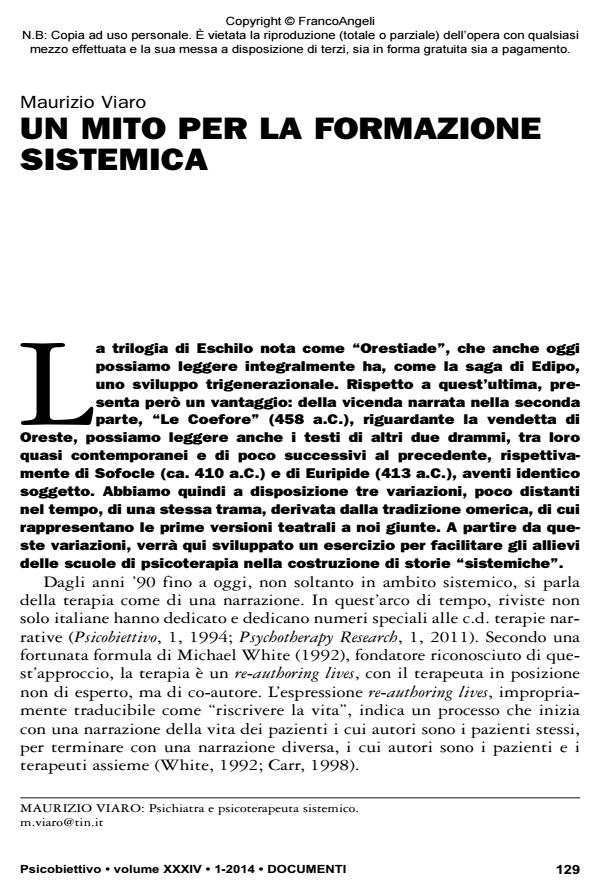A myth on the systemic training
Journal title PSICOBIETTIVO
Author/s Maurizio Viaro
Publishing Year 2014 Issue 2014/1
Language Italian Pages 17 P. 129-145 File size 559 KB
DOI 10.3280/PSOB2014-001010
DOI is like a bar code for intellectual property: to have more infomation
click here
Below, you can see the article first page
If you want to buy this article in PDF format, you can do it, following the instructions to buy download credits

FrancoAngeli is member of Publishers International Linking Association, Inc (PILA), a not-for-profit association which run the CrossRef service enabling links to and from online scholarly content.
In this article, a five-step-procedure designed to obtain "systemic" variations from a given story is described. Six work variations from the myth of Electra by different AA. have been examined (Aeschylus, Sophocles, Euripides, von Hoffmansthal, O’Neill and Yourcenar), as examples of variations of the same story. Both in individual and in family therapy, the therapists promote only a limited set of variations from the narrative offered by the patients: a first set of restrictions are ethical in their nature; some additional constraints pertain the need for a shared epistemological background between the therapists and the patients; finally, different principles distinguish "systemic", "psychodynamic psychotherapies" and "organists" narratives. The need to integrate, in therapeutic practice, such principles with the models of a psychological and psycho- biological models credited by Scientific Community, is established.
Keywords: Narrative Psychotherapies; Systemic Therapy; Training; Mith; Electra
Maurizio Viaro, Un mito per la formazione sistemica in "PSICOBIETTIVO" 1/2014, pp 129-145, DOI: 10.3280/PSOB2014-001010